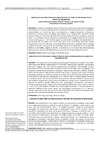Identificador persistente para citar o vincular este elemento:
https://accedacris.ulpgc.es/jspui/handle/10553/12949
| Campo DC | Valor | idioma |
|---|---|---|
| dc.contributor.author | Hidalgo, Lorena | en_US |
| dc.contributor.author | Martín Tamayo, Ignacio | en_US |
| dc.contributor.author | Chirosa, Luis Javier | en_US |
| dc.date.accessioned | 2015-03-14T03:30:35Z | |
| dc.date.accessioned | 2018-03-15T14:35:27Z | - |
| dc.date.available | 2015-03-14T03:30:35Z | |
| dc.date.available | 2018-03-15T14:35:27Z | - |
| dc.date.issued | 2015 | en_US |
| dc.identifier.issn | 1886-8576 | en_US |
| dc.identifier.uri | https://accedacris.ulpgc.es/handle/10553/12949 | - |
| dc.description.abstract | La presente investigación tiene el objetivo de analizar las características psicológicas relacionadas con el rendimiento deportivo y el estilo de toma de decisiones de 70 nadadores, relacionándolos en función del sexo, nivel deportivo y categoría deportiva. Utilizando el cuestionario Características Psicológicas relacionadas con el Rendimiento Deportivo (CPRD) (Gimeno, 1999) y el Cuestionario de Estilo de Toma Decisiones (CETD) (Ruiz, Graupera, y Sánchez, 2000). Los resultados muestran diferencias significativas en la categoría deportiva en la escala cohesión de equipo (p = .001) donde según va aumentando la categoría van decreciendo las puntuaciones de las medias. Por último decir que se han encontrado relaciones lineales significativas en el Control de Estrés con el Rendimiento, Motivación, Habilidad mental, Ansiedad y Agobio al Decidir y Compromiso de Aprendizaje Decisional. El Rendimiento con la Habilidad Mental y la Ansiedad y Agobio al Decidir. La motivación con el Compromiso de Aprendizaje Decisional y por último la Habilidad Mental y el Compromiso de Aprendizaje Decisional. | en_US |
| dc.description.abstract | This research aims to analyze the psychological characteristics related to the athletic performance and decision-making style of 70 swimmers, relating them to gender, sporting level and sport category. We have used the questionnaire Psychological Skills Related to Sport Performance (C.P.R.D, according with its Spanish name) with five sales: stress management, the influence of performance evaluation, motivation, mental ability and team cohesion (Gimeno, 1999) and the Decision Making Style Questionnaire (CETD, in Spanish) with three sub-scales: perceived competence in decision-making, the anxiety and burden felt when deciding and the commitment to learn decision-making (Ruiz et al., 2000) so that our research design has had a co-relational nature. The results show that the two questionnaires are suitable for measuring the psychological characteristics of performance and decision-making in sport. Noteworthy was the absence of significant gender differences, both psychological characteristics and decision making. Analyzing the sport category there were significant differences in team cohesion scale (p = .001). This as the category increases the score averages decreases. In the sporting level no significant difference were found neither the Psychological characteristics nor in decision- making. Finally we can say that we found several significant linear relationships between each questionnaire subscales and between the subscales of both. | en_US |
| dc.format | application/pdf | es |
| dc.language | spa | en_US |
| dc.relation.ispartof | Revista Iberoamericana de Psicologia del Ejercicio y el Deporte | en_US |
| dc.source | Revista Iberoamericana de Psicología del Ejercicio y el Deporte [ISSN 1886-8576] v. 10 (1), p. 49-56, (2015) | en_US |
| dc.subject | 61 Psicología | en_US |
| dc.subject.other | Natación | en_US |
| dc.subject.other | Psicología | en_US |
| dc.subject.other | Toma de decisiones | en_US |
| dc.subject.other | Swimming | en_US |
| dc.subject.other | Psychology | en_US |
| dc.subject.other | Decision making | en_US |
| dc.subject.other | Fazer natação | en_US |
| dc.subject.other | A tomada de decisão | en_US |
| dc.title | Análisis de las caracterísicas psicológicas y la toma de decisiones en un grupo de nadadores | en_US |
| dc.title.alternative | Analysis of psychological characteristics and decision making in a group of swimmersclass | en_US |
| dc.title.alternative | Análise de características psicológicas e decisão em um grupo de nadadores | en_US |
| dc.type | info:eu-repo/semantics/article | en_US |
| dc.type | Article | en_US |
| dc.compliance.driver | 1 | es |
| dc.identifier.absysnet | 537108 | - |
| dc.identifier.crisid | -;-;- | |
| dc.description.lastpage | 56 | en_US |
| dc.identifier.issue | 1 | - |
| dc.description.firstpage | 49 | en_US |
| dc.relation.volume | 10 | en_US |
| dc.investigacion | Artes y Humanidades | en_US |
| dc.rights.accessrights | info:eu-repo/semantics/openAccess | es |
| dc.type2 | Artículo | en_US |
| dc.description.numberofpages | 8 | en_US |
| dc.utils.revision | Sí | en_US |
| dc.identifier.ulpgc | Sí | en_US |
| dc.contributor.buulpgc | BU-FIS | en_US |
| dc.description.sjr | 0,311 | |
| dc.description.sjrq | Q3 | |
| dc.description.sellofecyt | Sello FECYT | |
| dc.description.esci | ESCI | |
| dc.description.dialnetimpact | 1,0 | |
| dc.description.dialnetq | Q1 | |
| dc.description.erihplus | ERIH PLUS | |
| item.fulltext | Con texto completo | - |
| item.grantfulltext | open | - |
| Colección: | Rev. Iberoam. psicol. ejerc. deporte. 2015. v.10, n.1 Artículos | |
Visitas 5
91
actualizado el 10-ene-2026
Descargas
34
actualizado el 10-ene-2026
Google ScholarTM
Verifica
Comparte
Exporta metadatos
Los elementos en ULPGC accedaCRIS están protegidos por derechos de autor con todos los derechos reservados, a menos que se indique lo contrario.
